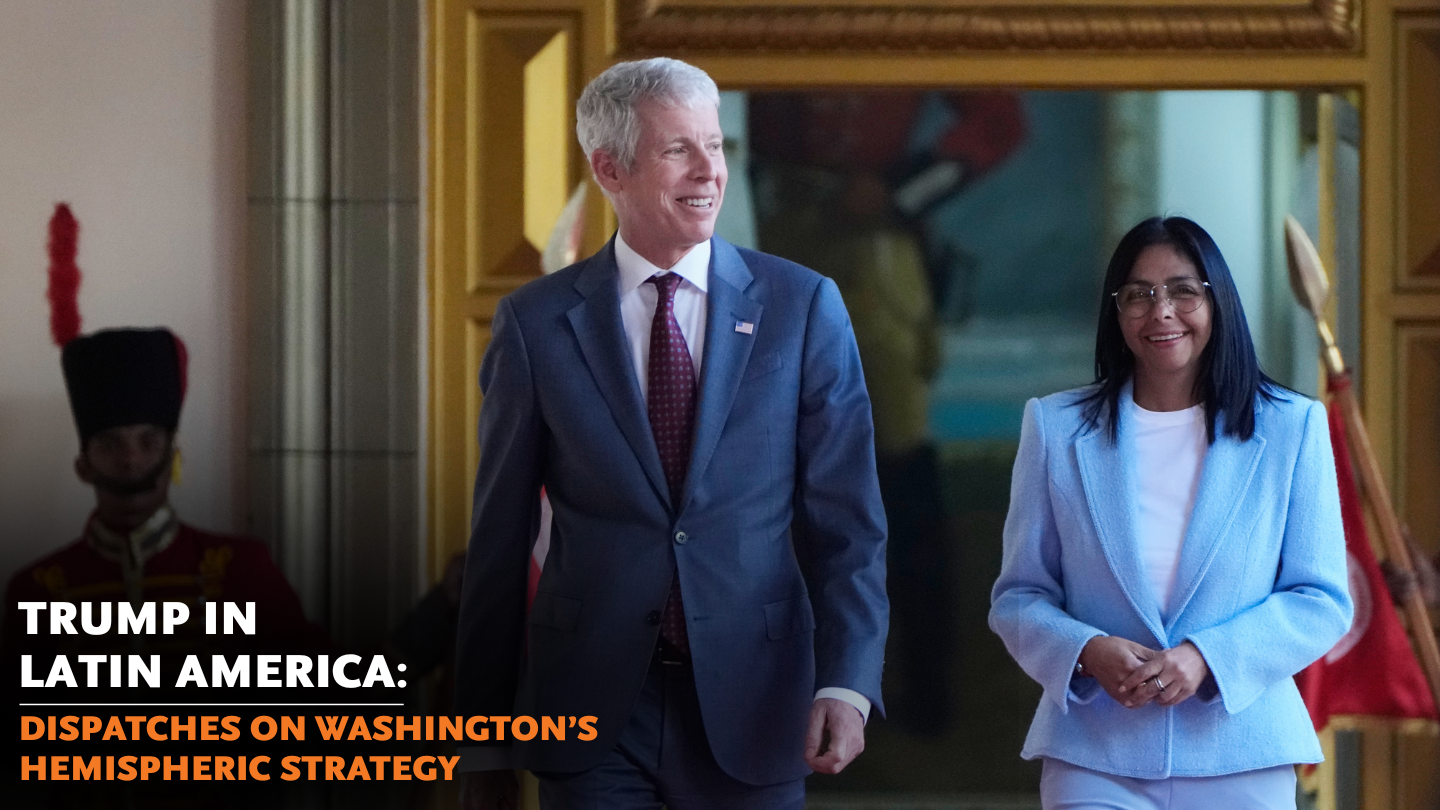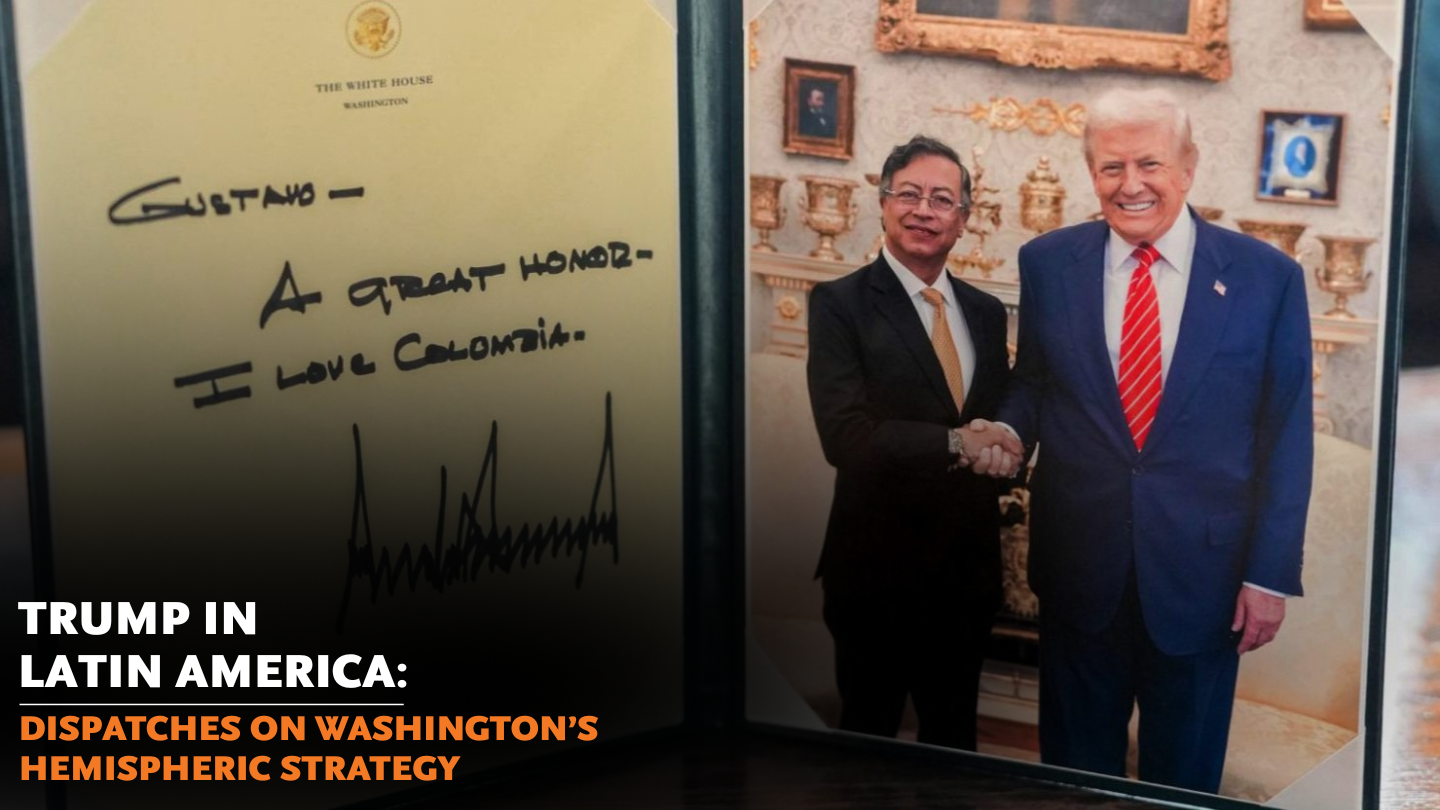Needed: Leadership in the Americas
Needed: Leadership in the Americas
Now is a time when judicious leadership and cooperation from all corners of the hemisphere will pay rich dividends, while a failure of leadership could cause further drift leading to increasing suspicion and divide. Ultimately, history will judge the result.
Tony Blair is much in vogue. Some say he is the best model for Democrats who seek to challenge President Bush in 2004. By sticking with the United States on Iraq against his own political base, others say history will compare him to Winston Churchill. In truth, he also might be an excellent model for Latin America, a region familiar with strong leaders, but where leadership is sometimes scarce.
Not long ago, regional leaders cut quite an international figure. During the Asian financial crisis in 1998, Asia-Pacific leaders reached out to Mexico and Chile for advice to contain economic collapse. Argentina and Chile sent equipment for coalition forces in the first Gulf War and its aftermath, and the Menem government took a high-profile position against the Castro dictatorship in Cuba.
Just as the Berlin Wall fell in Europe, a quiet revolution took place in the Americas that built democratic institutions, opened borders to trade and investment, and aligned hemispheric interests more closely with the United States and the developed world. Above all, at high political cost, leaders cast away hemispheric "old think," and the United States reciprocated by agreeing to pursue a regional free trade agreement and the promise of a new, lasting partnership. At three Summits of the Americas, the last one in Quebec City barely two years ago, leaders resoundingly supported cooperation and mutual responsibility as the new model for hemispheric affairs.
Now, while some in the hemisphere fail to understand the U.S. concern with the fight against terrorism, and U.S. policy-makers view the region through a "for us or against us" lens, we are at a watershed. Some in Washington even seek to turn away from the hemisphere. But this would be an unfortunate, if understandable, result.
The simple fact is that the hemisphere remains vital to U.S. national security and commercial interests, and the best way to get through this difficult period is to work together toward common goals perceived to be in all of our interests, for example by concluding a Free Trade Area of the Americas by 2005.
In the meantime, there is ample room for a re-think on all sides. With Treasury Secretary John Snow's recent travel to Brazil and Trade Representative Robert Zoellick's trip there in May, an effort is under way by the administration to forge a business-like relationship with Brazil's President Luiz Ignacio Lula Da Silva, an effort that should be continued and expanded as, despite early predictions, Lula exercises creative, sound leadership and finds his voice as a pragmatist.
In some ways, Lula is the perfect partner. A former trade unionist who counts the Brazilian Communist Party among his allies, Lula has the credibility, should he so choose, to join with the United States to conclude the FTAA, much as President Richard Nixon, the staunch anti-Communist, opened up China. But to do so, Lula will have to forsake his base to join the United States in achieving an international outcome that puts national interest above political expediency, exactly the decision faced by Tony Blair.
More generally, Latin and Caribbean leaders should take a more active role in supporting Gulf reconstruction efforts, whether or not they supported the war. Tangible consideration in this regard would be deeply appreciated and mutually rewarding.
In addition, Mexican President Vicente Fox' agreement to host an interim Summit of the Americas in Mexico during the second half of 2003 provides a golden opportunity – if hemispheric leaders will seize it – to restore the spirit of cooperation that has recently suffered.
For its part, the United States should continue to final implementation of the bilateral trade agreement it has negotiated with Chile, an effort that has stalled given Chile's recent posture at the United Nations. It also should conclude the trade agreement with Central America currently under negotiation and push hard – but thoughtfully – for FTAA.
Leadership is a precious commodity. It is not always easy or fully appreciated, and effective leaders often emerge from unexpected places, for example the labor movement in Brazil. But now is a time when judicious leadership and cooperation from all corners of the hemisphere will pay rich dividends, while a failure of leadership could cause further drift leading to increasing suspicion and divide. Ultimately, history will judge the result.








